BNA Annual General Meeting 2025
1st April 2025
There is a wealth of information about neuroscience online. Here are some websites selected by the BNA Council and Committee which we believe provide good sources of information on the brain and nervous system, in both health and disease. (Please see our disclaimer regarding links to external websites).
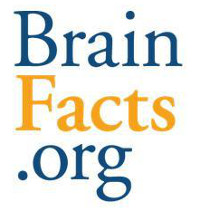
This superb website is an authoritative source of information about the brain and nervous system for the public. Its purpose is to share what neuroscientists know, explore what they don’t yet know fully, and discuss how today’s research advances understanding.
An initiative of The Kavli Foundation, the Gatsby Charitable Foundation, and the Society for Neuroscience - all leading global nonprofit organisations working to advance brain research - the brainfacts.org editorial board is made up of leading neuroscientists from around the world, all the site’s content is reviewed by scientists for accuracy, and information is regularly checked and updated.
BrainFacts.org provides information about the field’s understanding of causes, symptoms, and outcomes of brain disorders. It is not intended to give specific medical or other advice to patients. Visitors interested in medical advice should consult with a physician.
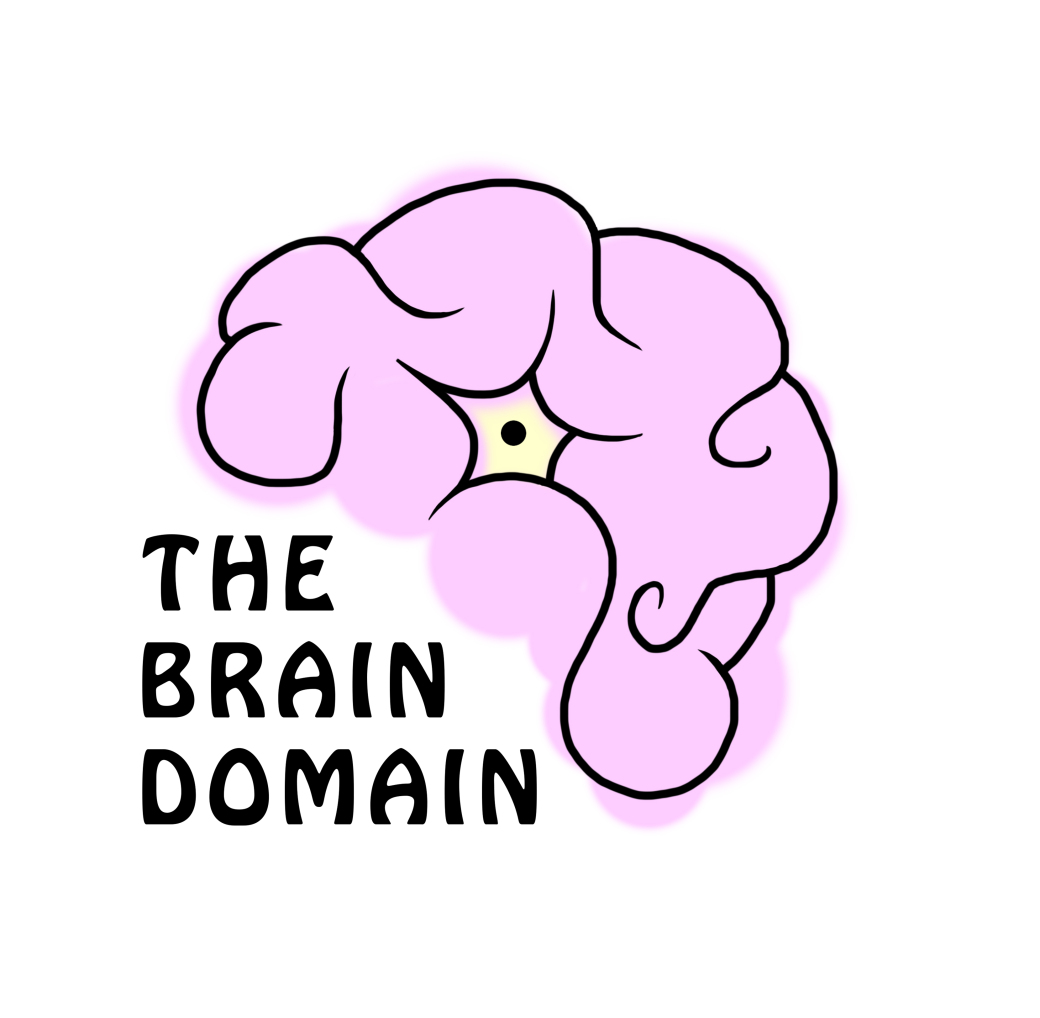
Set up by BNA members from Cardiff University, The Brain Domain’s primary objectives are to engage the interested public with neuroscience and to develop science communication skills for early career scientists in a peer-driven setting. Articles posted on The Brain Domain website come in all shapes and sizes, from quirky introductions on neuroscience topics to explorations of recent news to patient perspectives.
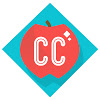
Crash Course is a series of free, high-quality educational videos used by teachers, students, and anyone else interested in the wide variety of topics covered. Neuroscience topics have been covered in several different Crash Courses. Here, you can find a playlist with selected neuroscience videos, all well explained and engaging.
 Exploding Brain Myths
Exploding Brain MythsExcellent, short and entertaining animations, developed by BNA member Rhiannon Meredith, which provide the real science beyind some common neuromyths.
Watch each one to find out how we do NOT use just 10% of our brain; we are NOT left-brained or right-brained; brain training may NOT improve memory or stave off dementia; and why there is no such thing as 'the love hormone'. Or the pain hormone or reward hormone either!

Created by a neuroscientist, these 2-minute videos simplistically explain neuroscience topics. The videos cover a wide range of topics - from basic neuroscience such as the neuron, to more complicated matters such as long-term potentiation.
 The Fundamentals of Neuroscience
The Fundamentals of NeuroscienceThe Fundamentals of Neuroscience is a free online course at Harvard University in the US. The course serves as an introductory survey of topics in neuroscience, ranging from the function of ion channels in the neuronal membrane, to the activity of individual neurons and small groups of neurons, to the function of the brain and its subsystems.
Those students who successfully complete the course are eligible to receive a certificate of completion from edXTop
 Ask a Biologist
Ask a BiologistHere you can browse through thousands of questions sent in by members of the public and answered by some of the world's foremost experts in biology.
Although covering all sorts of topics, questions and answers about neuroscience are very popular and make up a significant proportion of the site's contents.
Use the search facility on the site to look up answers about the brain and nervous system - or send in a question yourself.
 Glossary of Key Brain Science Terms
Glossary of Key Brain Science TermsA list of definitions for common terms used when describing and discussing the brain and nervous system, produced by the Dana Foundation.
Everything from adrenal glands (glands which receive signals from the brain and secrete several different hormones in response to stress, including cortisol and adrenaline) to white matter (brain or spinal cord tissue, consisting primarily of the myelin-covered axons that extend from nerve cell bodies in the grey matter of the central nervous system) and (almost!) all letters in between.Top
 TED Talks on Understanding the Brain
TED Talks on Understanding the BrainAn updated list featuring neuroscience from the now world-famous TED talks, a nonprofit enterprise devoted to spreading ideas in the form of short, powerful talks (18 minutes or less).

The NNCI is a collaboration between educators and neuroscientists based in the US. The overarching aim of the NNCI is to create, pilot, and disseminate a comprehensive set of resources that help train American psychiatrists to integrate a modern neuroscience perspective into their clinical work. To meet this aim they have developed engaging and interactive exercises for teaching in the classroom in addition to brief videos and resources for self-study and clinical supervision. Although there is, naturally, a focus on psychiatry and treating psychiatric disorders, there are also excellent resources on the fundamentals of neuroscience.
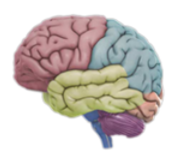
The 3D Brain App is an interactive brain map that allows users to rotate the brain in three-dimensional space. Individual maps of 29 structures include information on brain damage, case studies, and links to modern research.
Use your touch screen to rotate and zoom around the interactive brain structures. Discover how each brain region functions, what happens when it is injured, and how it is involved in mental illness. Each detailed structure comes with information on functions, disorders, brain damage, case studies, and links to modern research.
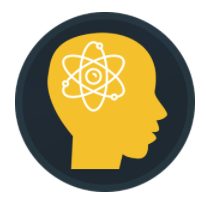
Receive all the latest neuroscience news to your phone. The app allows you to get latest news from the most popular digital journals and magazines and save your favourites, as well as translate the articles to your language.

In this monthly podcast from the Dana Foundation, experts from the field of neuroscience are interviewed on topics such as sleep, autism and the 'terrorist brain'.
The mysterious case of Phineas Gage fundamentally altered our understanding of mental health, neuroscience, and behaviour. An unwitting and involuntary contributor to the history of neuroscience, in 1848 Gage suffered a horrific accident which damaged his brain and appeared to change his personality. Fascination with his plight encouraged scientific research into the brain.
This incredible true story is brought to life in a 20-minute film for which you can watch the trailer here.
Read more about Phineas Gage online.
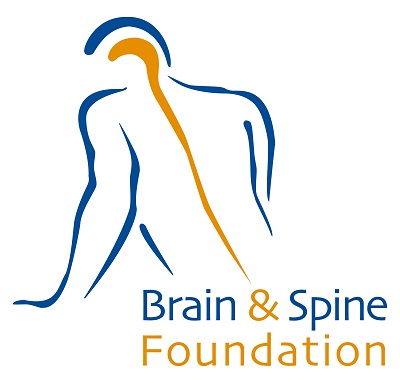 The Brain and Spine Foundation
The Brain and Spine FoundationThe Brain and Spine Foundation website provides a wealth of information about neurological problems (medical disorders which affect any part of the nervous system). Their booklets and fact sheets, which are written by an editorial team including neuroscience nurses, are accredited by The Information Standard, a certification scheme supported by the Department of Health. The Foundation also has a helpline, online Q&A sessions, discussion forums - and much more.

The European Brain Council website has some useful and clearly presented information about brain disorders and their impact.
 NHS Choices Health A-Z
NHS Choices Health A-ZA clear and comprehensive source of information on hundreds of conditions and treatments for them. Although not exclusive for disorders of the nervous system, you're almost certain to find them listed here!
Information on health care services is focused on UK-based NHS provision.
 National Institutes of Health A-Z of brain diseases and disorders
National Institutes of Health A-Z of brain diseases and disordersThis list of more than 400 neurological disorders from the National Institute of Neurological Disorders and Stroke gives summaries of symptom descriptions, treatment options and prognosis, along with information about ongoing research on causes, diagnosis, and potential therapies.
You can also find contact information for related professional and health organizations (tend to be US-focused).
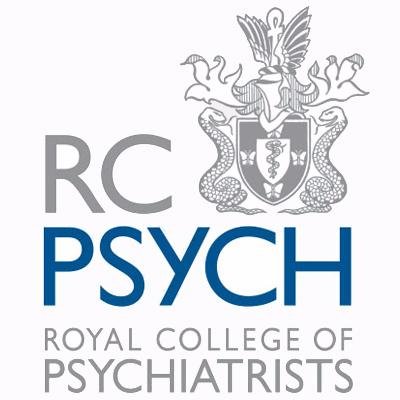
The Royal College of Psychiatrists provides readable, user friendly and evidence based information about mental health problems. This includes leaflets on dementia, depression and PTSD.
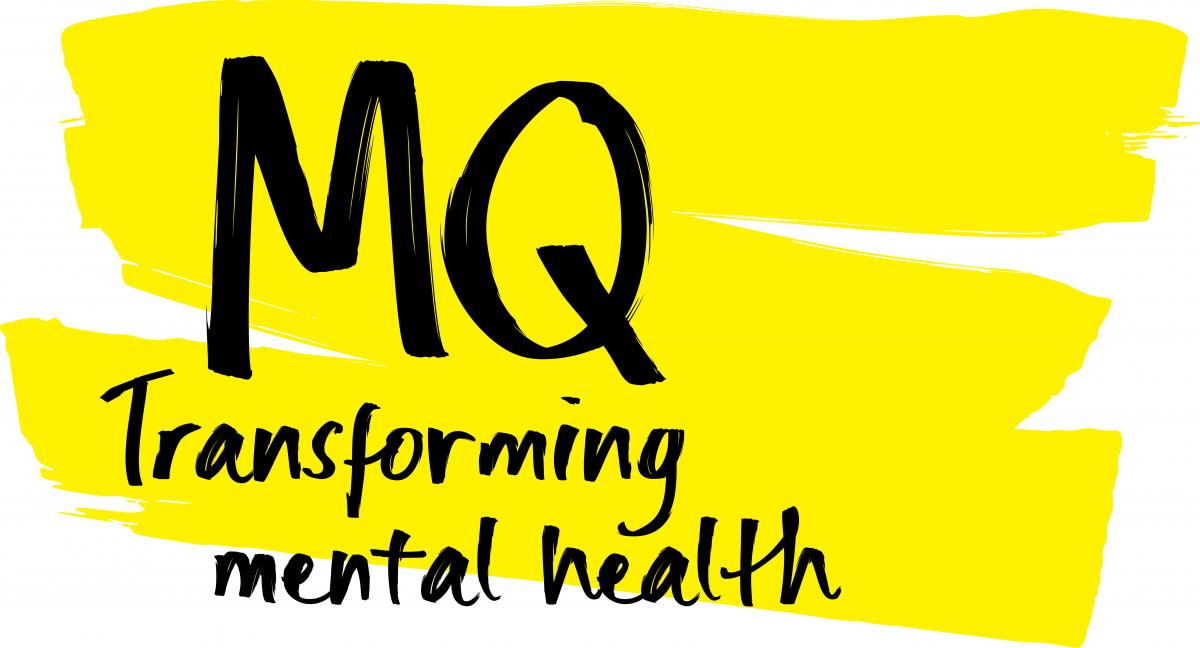
Is depression caused by the immune system? What does it feel like to live with social anxiety? Could an algorithm end the trial-and-error approach to mental health treatment? These are some of the questions we’ve taken on so far in MQ Open Mind – a new podcast, which is available to listen to today.
We chat with people who have faced the reality of mental illness, from social anxiety to bipolar II. They discuss the challenges they’ve had to overcome and their hopes for the future. They’re joined by researchers talking about the cutting-edge science which could transform the lives of people like them.
Key amongst the BNA's Charitable Objects are those to share neuroscience and engage with people about neuroscience research, and we encourage and support our members to do so.
The websites below provide good resources for use in public engagement activies. If you have any recommendations we can add to this page and share with other BNA members, please let us know.
 Brainfacts.org
Brainfacts.orgBrainFacts.org is an authoritative source of information about the brain and nervous system for the public. Its purpose is to share what neuroscientists know, explore what they don’t yet know fully, and discuss how today’s research advances understanding.
An initiative of The Kavli Foundation, the Gatsby Charitable Foundation, and the Society for Neuroscience - all leading global nonprofit organisations working to advance brain research - the brainfacts.org editorial board is made up of leading neuroscientists from around the world, all the site’s content is reviewed by scientists for accuracy, and information is regularly checked and updated.
BrainFacts.org provides information about the field’s understanding of causes, symptoms, and outcomes of brain disorders. It is not intended to give specific medical or other advice to patients. Visitors interested in medical advice should consult with a physician.
 The DANA Foundation
The DANA Foundation Your gateway to responsible information about the brain. The Dana Foundation is a private philanthropic organisation that supports brain research through grants, publications, and educational programs.
An extensive site full of useful information about the brain, including news stories and free publications.
This is also a good place to find out about Brain Awareness Week, a "global campaign to increase public awareness of the progress and benefits of brain research", which was launched by the Dana Alliance for Brain Initiatives in 1996.
 Neuro-hit or neuro-myth
Neuro-hit or neuro-mythAn excellent site on 'Neuromyths' from the Centre for Educational Neuroscience, Birkbeck University of London.
Researchers in educational neuroscience have begun to compile sets of resources, meta-analyses and reviews to address which neuroscience-inspired teaching techniques are supported by empirical evidence, and which ‘facts’ about the brain actually reflect current consensus within neuroscience.
In these pages you can access some of these resources, themed around some of the main topics where neuromyths have arisen, and give brief overviews about the existing state of research – what we know and don’t yet know on these topics.
 Neuroscience for kids
Neuroscience for kidsNeuroscience for Kids is maintained by a neuroscientist, Eric Chudler, and "has been created for all students and teachers who would like to learn about the nervous system."
"Discover the exciting world of the brain, spinal cord, neurons and the senses. Use the experiments, activities and games to help you learn about the nervous system. There are plenty of links to other web sites for you to explore.”
This is a particularly useful site for neuroscience-related public engagement activities, questions and answers about the brain, and even runs a poetry contest.
 Frontiers for Young Minds
Frontiers for Young MindsFrontiers for Young Minds provides a collection of freely available scientific articles by distinguished scientists that are shaped for younger audiences by the input of their own young peers.
A non-profit journal, scientists are invited to write about their research for a younger audience and the articles are reviewed by Young Reviewers age 8-15 with support from Science Mentors.
One of the four sections of this journal is dedicated to neuroscience and contains many excellent articles about “Core Concepts" and “New Discoveries" in neuroscience, all written in a clear and accessible manner, and well-illustrated with cartoons, diagrams and images.
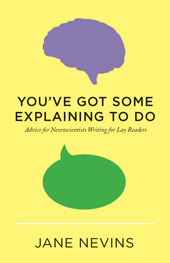 You've Got Some Explaining to Do: Advice for Neuroscientists Writing for Lay Readers
You've Got Some Explaining to Do: Advice for Neuroscientists Writing for Lay ReadersPaul Matthews, Imperial College London, said, “Jane Nevins captures and conveys the true meaning of communicating through writing...This book is a must read for every aspiring young scientist and scholar.”
The book is divided into three parts: The Meet-up, Simple Fixes, and Science and Style. In the Meet-up, Nevins describes the different venues for lay writing, from opinion pages to popular magazines, and what readers of each expect and respond to best. In Simple Fixes she shows how jargon, ‘cross-over words,’ and hackneyed expressions can be remedied, clearing away confusion for readers. In Science and Style she discusses what to put first, how to quote and paraphrase in lay copy, and what to leave out.
Jane Nevins served as editor in chief of the Dana Press from its inception in 1998 until 2010. She has more than 20 years of experience in translating neuroscience.
For more resources for outreach, please click here.
Please click here to see our online resources for teaching and revision of neuroscience conceptions within the GCSE, A-Level, National 5s, Highers, and Advanced Highers syllabuses.